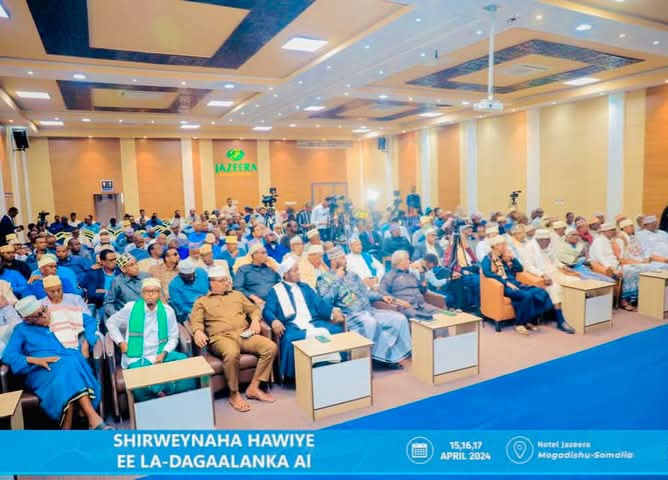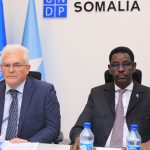Mogadishu, SONNA – A high-level national conference focused on combating the Khawarij (Al-Shabaab) concluded in Mogadishu with a powerful call for unified action against terrorism. The gathering, which brought together more than 700 delegates from across Somali society, including government officials, religious leaders, traditional elders, civil society representatives, and security experts, marked a significant moment in Somalia’s ongoing fight against extremism.
The conference’s final communiqué emphasized several critical points in the nation’s counterterrorism strategy. It strongly urged all Somali citizens to actively participate in supporting the Somali National Army’s operations against Al-Shabaab, particularly in frontline regions. Delegates unanimously agreed on the need to strengthen both military and ideological efforts against the militant group, with special attention given to disrupting its financial networks and recruitment channels. Religious scholars at the event played a prominent role in condemning Al-Shabaab’s extremist ideology and reaffirming Islam’s true teachings of peace and tolerance.
Several senior government figures addressed the assembly, delivering impassioned speeches about the current state of the conflict. The Minister of Foreign Affairs emphasized the collective nature of the threat, stating, “The Khawarij are not just attacking the government – they are targeting our entire society, our way of life, and our future generations.” The Minister of Health provided a sobering assessment of Al-Shabaab’s current tactics, noting their increased focus on attacking civilian infrastructure, particularly healthcare facilities, as they lose territorial control to government forces.
Security analysts at the conference presented detailed assessments of recent military operations, highlighting both successes and ongoing challenges. They particularly noted the importance of sustaining public support for government forces and maintaining momentum in cleared territories through effective stabilization programs. The role of local resistance groups, known as Macawisley, was celebrated as a crucial element in the counterinsurgency effort.
The conference concluded with a series of concrete recommendations, including enhanced cooperation between federal and state-level security forces, improved intelligence sharing with international partners, and the development of more robust counter-radicalization programs targeting vulnerable youth. As Somalia continues its comprehensive offensive against Al-Shabaab, this gathering served as both a strategic planning session and a powerful demonstration of national unity against extremism. The strong participation from all sectors of society sends a clear message that the Somali people stand together in their determination to liberate their country from terrorist control and build a secure, prosperous future.





